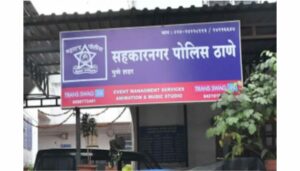JBGVS assisting Katkari and other tribals to earn a living through goat rearing
Over 3,266 goats distributed to BPL families in five years across four districts
Pune: 13 April: In an agrarian country like India, animal husbandry has been practiced since time immemorial. In particular, goats are able to survive in diverse climatic conditions and require very little inputs from the farmer. Thus, goats play a vital role in improving the economic condition of the rural poor. Jankidevi Bajaj Gram Vikas Sanstha (JBGVS) has been providing goats to poor and BPL (below poverty line) families over the past 10 years to raise their income levels and bring them above the poverty line (APL).
Focus on tribal communities
Of late, JBGVS has been focussing on Katkari and Mahadev Koli communities in the Western Ghats region in Pune district. Commenting on the initiative, Mr R S Uphade, Senior Project Officer, JBGVS said, “Katkaris are landless and have largely lost their traditional livelihoods due to loss of forest and now survive as labourers at brick kilns and construction sites or as subsistence fishermen. So, in 2016-17 we started providing goats to them as an income source.” A set of five goats (one male and four females) each, adding up to 65 animals, was provided to 13 Katkari families in Maval taluka. Earlier they were also provided fishing nets as another source of income. This is the first instance of large scale distribution of goats by JBGVS to Katkaris.
During the year, 13 Mahadev Koli families and 32 non-tribal families were provided with a set of goats each (total 65 and 160 animals respectively) in Maval taluka, as against the earlier practice of giving single goats. According to Mr R M Hinge, Senior Project Officer, JBGVS, 15 sets (75 goats) were provided to tribals (Mahadev Koli) and 18 sets (90 goats) to non-tribals in Khed taluka as well.
Goat rearing for all BPL families
This initiative aims to achieve the twin objectives of improving the income of BPL families (tribal and non-tribal) and providing goat milk nutrition to children and women, without much investment. The number of goats provided across four districts; viz. Pune, Aurangabad and Wardha in Maharashtra and Sikar in Rajasthan in 2016-17 are 1,162. Over the past 10 years 1,817 goats have been provided to 1,029 tribal and non-tribal BPL families in Pune alone, while the tally for all the districts touches 4,720 goats to 2,554 families. The activity has been more intense over the past five years with 3,266 goats across all districts. In the year of distribution, 50% of the insurance cost is also borne by JBGVS.
From BPL to APL through goat rearing
Goat rearing is truly a ray of hope for the rural poor, since goats are easy to rear and have a ready market locally. Four female goats and one male goat (set of five animals) that are provided by JBGVS to every BPL family, start reproducing in the first year itself at the average rate of three lambs per female goat. Explaining the same, Mr V B Sohoni, Secretary, JBGVS, said, “By the end of the first year, the family can earn Rs 20,000 (Rs 5,000 per goat) by selling four male offspring. Thereafter, on an average a family can earn about Rs 40-50,000 annually from the third year. This supplementary income helps the family to transform into APL.” JBGVS also purchases goats from them to provide to other potential beneficiaries.
Moreover, goats eat leaves and grasses of different species when grazing outdoor. This makes their milk wholesome and suffices the nutrition needs of the farmers’ families. JBGVS also insists the beneficiaries to undertake controlled grazing and rearing in enclosures to ensure that the surrounding forest is not destroyed by over grazing.





